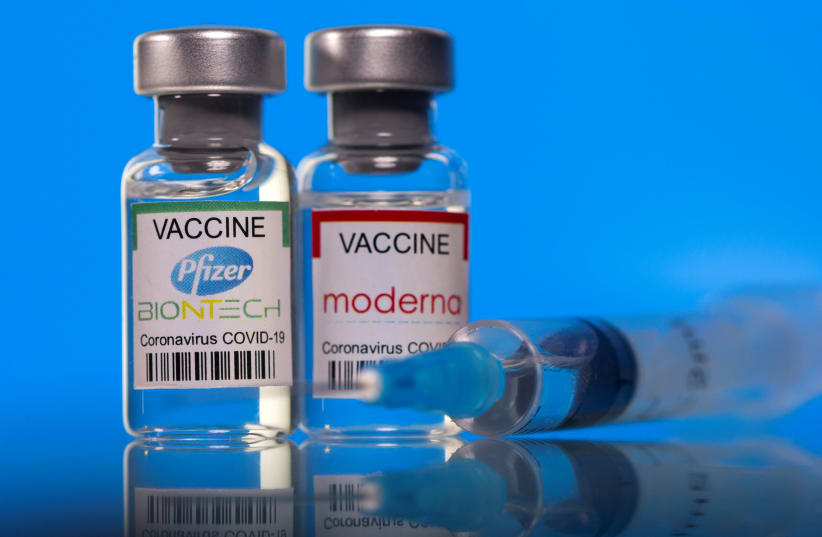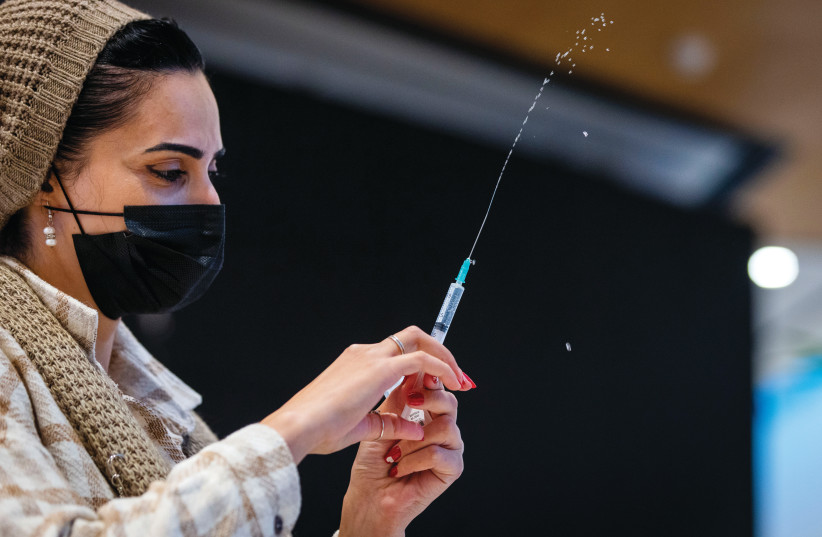A new study on COVID-19 vaccination knowledge and acceptance among university students in the United Arab Emirates reveals that even among highly educated people in a country known for its high rates of vaccination, there is much room for improvement. The overall level of knowledge is good but unevenly distributed. Ignorance and misinformation continue to contribute to vaccine hesitancy in some populations – a situation that could be significantly improved with greater access to health education.
The United Arab Emirates has one of the highest rates of vaccination against COVID-19 not only in the Middle East and North Africa region but in the entire world. As of January 12, 91.87% of the UAE’s population was considered fully vaccinated. Only Gibraltar has a higher rate – effectively, 100%. (In fact, Gibraltar’s published rate of vaccination – 119.05% – exceeds 100% due to the vaccination of nonresidents.) The UAE has also administered a relatively high 38.64 vaccine booster doses per 100 residents. In the MENA region, only Cyprus (38.66), Bahrain (51.27) and Israel (52.08) have given more boosters relative to population size.
But while the UAE boasts a relatively high rate of vaccination overall, vaccine hesitancy remains an issue of great concern for some populations in the Emirates and for people and governments in many Arab countries, across the MENA region, and globally.
COVID-19 vaccine hesitancy builds on the general anti-vax sentiment that is fueled by misinformation spread on social media. In the case of COVID-19 vaccines, the use of novel technology and unprecedented speed of development have also fed public skepticism.
Finally, the cumulative effects, over the extended period of the pandemic, of widespread infection, exacerbated by the emergence of vaccine-resistant variants like omicron, and reinforced by the anecdotal evidence of people’s subjective experience, for example knowing others who have been seriously ill or died from the disease, have taken a toll on the public’s trust in the medical system and in their governments’ efforts to combat the pandemic. The result is a self-reinforcing vicious circle: Vaccine hesitancy decreases the effectiveness of vaccine campaigns, with devastating effects on both public health and the economy, leading to even greater vaccine hesitancy.
The study, titled “Prevalence, Knowledge and Potential Determinants of COVID-19 Vaccine Acceptability Among University Students in the United Arab Emirates: Findings and Implications,” was peer-reviewed and published in the latest issue of the Journal of Multidisciplinary Healthcare.
Study participants included 467 students at Ajman University. Among them, 76% were female. In terms of nationality, 82% were non-Emirati Arabs, 9% were Emiratis, 3.6% other Asians, 2.8% non-Arab Africans, and 2.6% Westerners. Participants represented the full range of classes, from first-year students to master’s degree students, and a wide range of major areas of study, including business administration, dentistry, education and basic sciences, engineering, medicine, information technology, law and mass communication and humanities.
Somewhat surprisingly, only 38.8% of the participants reported they had been vaccinated against the COVID-19 virus. But the vaccine acceptance rate – defined by the portion of participants who affirmed that “it is important to take the vaccine to protect people from COVID-19” – was 56.3%.
Vaccination was less prevalent among the non-Emirati Arabs than among participants from other backgrounds, and less prevalent among students in the non-health-science colleges than among those studying in the health-science colleges.
The study found that, overall, participants had a good level of general knowledge regarding the infection. But their level of knowledge was quite varied; 30.1% of the students surveyed had poor knowledge. This, the study concluded, came from nonscientific resources, and could be improved with the dispelling of common misconceptions.
Most students correctly said that common transmission routes of the disease include droplets spread through coughing or sneezing, touching an affected person, or contact with a surface recently touched by an affected person. But a majority incorrectly thought airborne transmission was common, and most either thought incorrectly that waterborne transmission was a common route or did not know whether it was.
Only a little less than half of the participants correctly knew that antibiotics were ineffective against COVID-19. About 18% wrongly thought that there was currently no vaccine to protect against the disease, and about 7% wrongly thought an ordinary flu vaccine gave protection against COVID-19. More than half were either unsure or thought incorrectly that vaccines against pneumonia protect against COVID-19.
Concerns with the vaccine were mainly due to its potential side effects and limited trial data on its benefits, though 64.2% disagreed with the statement that side effects would prevent them from taking the vaccine.
The study noted that available research shows “vaccine hesitancy reduces over time as more knowledge becomes available” and recommended increasing education among students by “credible vaccine promoters including physicians.”
Finally, the study recommended that “to enhance COVID-19 vaccination uptake in the country and worldwide, health education targeting diverse sociodemographic categories should be prioritized.”

